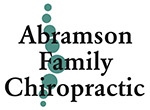Back and Neck Pain Linked to Workplace Absenteeism
An analysis of data from a study that included 1,471 adults found that back pain- and neck pain-related difficulties with walking, standing, or sitting account for up to 43% of all days of missed work. Past studies have demonstrated that prolonged sitting, physical inactivity, and poor ergonomics are risk factors for work-related back and neck pain. European Spine Journal, January 2022
Health Alert: Cholesterol Issues in 30s Linked to Alzheimer’s Risk. Researchers analyzed data on nearly 5,000 people who underwent thorough exams during three specific age periods: 35-50, 51-60, and 61-70. They found that individuals who developed Alzheimer's disease later in life were more likely to have had lower levels of high-density lipids (HDL) or "good" cholesterol and higher levels of triglycerides as early as age 35 than those who did not develop dementia later in life. The findings suggest that people should start taking control of their health and lifestyle sooner, such as attending annual wellness visits in their 30s, getting more exercise, and following a healthier diet to help lower the risk of Alzheimer’s disease. Alzheimer’s & Disease, March 2022
Diet: Risk Factors for Nasopharyngeal Carcinoma. Nasopharyngeal carcinoma is a rare form of cancer that occurs when a tumor grows at the rear of the nose. A literature review found that a high intake of processed meat, salted fish, and processed vegetables are each associated with an elevated risk for the disease. European Archives of Oto-Rhino-Laryngology, May 2022
Exercise: Staying or Getting Active Lowers Risk for Ischemic Stroke. Among a group of 11,089 middle-aged and older adults, researchers observed that those who regularly exercised were 46% less likely to experience an ischemic stroke in the next two decades. Meanwhile, those who were initially inactive and then started to regularly exercise cut their risk for this type of stroke by 23%. International Journal of Stroke, April 2022
Mental Attitude: Did You Bump Your Head? Signs You Need Emergency Care. If you or a loved one has suffered head trauma, the American College of Emergency Physicians recommends seeking emergency care if there are any of the following signs: headaches that worsen despite taking over-the-counter medications; weakness, numbness, or decreased coordination; slurred speech; trouble walking; increased confusion or agitation; repeated vomiting; loss of consciousness for more than one minute; unequal pupil sizes; convulsions or seizures; or unusual changes in sleep patterns or mood. American College of Emergency Physicians, March 2022
Wellness/Prevention: Make Sure Kids Buckle Up. To keep kids safe once they graduate to wearing a seatbelt restraint in the car, SafeKids recommends the following: establish a rule that your child always wears a seat belt during every car ride, have children ride only in the backseat until the age of 13, be a role model by always wearing your seat belt, make sure children always ride with both the lap belt and shoulder belt, and show your child how to sit upright with good posture when riding in the car. SafeKids March 2022
